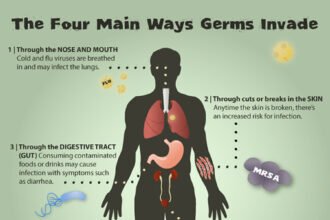Getting pregnant is a beautiful thing. Depending on your lifestyle you may decide to get pregnant younger in life, but then there are those that get pregnant, or want to when you are older. Maybe it was a career or not finding the right person, or just life. Having a child completely alters the way you live, there is less travel, less free time, and a lot less sleep. But regardless of the reason you can get pregnant when you are older, but we also want to ensure that the body is healthy enough to endure a pregnancy as well. It’s a lot harder to recover at 40 than it is at 20 when you have a child. Let’s look at some of the things you might want to consider when you are trying to get pregnant as an older woman.
After the age of 35, a woman’s fertility decreases. The reason for that is because there is a lower chance of ovulation, which is the main key to getting pregnant. In addition, the eggs that are produced aren’t as high quality as they once were. In general, while a woman is still able to have children and successfully get pregnant at an older age, it may be more work.
It Could Be Medical
While many contribute not being able to get pregnant to stress and also age, it could be something that is completely treatable. Take for example endometriosis. It’s a condition that may cause significant pain during menstruation and affects the ability to get pregnant. But this can be treated with laparoscopic surgery depending on the severity of the situation. There are also chronic medical conditions that can affect your ability to get pregnant as well. When speaking of chronic, we’re talking about things like high blood pressure, diabetes, etc., things that are continuous. Ensuring that you are as healthy as possible or monitoring your conditions with the help of a medical professional, you should be able to get pregnant (of course not considering any additional underlying causes).
How to Help Yourself Get Pregnant
First thing’s first, take a trip to your doctor and get checked out. This should include a full review of your lifestyle, blood work, and general checkup. Once all that comes back, then you can go ahead and work on some aspects of your life that can be helping and hurting you from getting pregnant. Some of the things that you may want to consider is quitting those bad habits. Some of them, like smoking, can cause infertility. The chemicals found in cigarettes are not something that is conducive to having a healthy body. Plus, if you start now, you won’t have to worry when you actually get pregnant about quitting.
Also decreasing the amount of alcohol and caffeine can help the body as well. While they haven’t been proven to have a negative effect, it could, and anytime there is a possibility that it could, it’s time to start eliminating it from the diet. Speaking of diet though, there are a multitude of foods that can actually promote your body’s ability to get pregnant as well, so it’s not always about taking away, but also adding more substantial nutrition in your life.
What You Should be Eating
There are many foods that are beneficial to your health, but some are tailored almost to help your body get pregnant and stay healthy throughout the entire 9-10 months. Let’s take a look at some of them.
Saffron: A spice, and an expensive one at that (but purity is important), and should be received from a specialty store, has loads of benefits. Containing manganese, vitamin C, magnesium, iron, potassium and vitamin B6, you are getting a large number of nutrients in a small amount of product. Some of the benefits that it affords when you are actually pregnant is to aid in digestion, help with mood swings (because they can be all too crazy when pregnant), manage blood pressure, alleviate cramps, reduce morning sickness, increase iron levels and help with sleep (because you’re going to need it).
Leafy Greens: Eat your salads! Really dark leafy greens have high levels of folate which is important when trying to conceive and may improve chances of ovulation. That’s why prenatal vitamins have this in it. It can also help to reduce the risk of miscarriage and genetic issues. Try things like arugula, spinach, and broccoli. And if you don’t like them alone, make a smoothie with some fruit and whole milk products…because that’s a good thing to add to the diet as well.
Olive Oil: This can be used in a variety of ways, but the main benefits of this is that it’s a monounsaturated fat which can decrease inflammation and increase insulin sensitivity. Inflammation can have a negative effect on ovulation and conception so having less of that is a good thing. This is a natural way to decrease it without taking medications.
Whole Foods: The last in general tip we’ll give, is to create a diet (or lifestyle change) that incorporates as much natural, whole food-based products. This means shopping the perimeter of the store where the least processed foods are. These are the ones that are the healthiest for you and can help support a new pregnancy. Processed food can increase the inflammation in the body (which was discussed earlier) and lead to spikes in blood sugar. Things that you generally don’t want to do when trying to conceive.
In general, the healthier you are can make getting pregnant a lot easier. This means bringing your weight down (if necessary) and eating a well-balanced diet and getting enough sleep (because once you have a child, sleep becomes minimal). And also, one of the most important things you can do, is relax. Stress can seriously affect the body’s ability to conceive and be healthy, so just enjoy the ride and take it day by day. Good luck!








